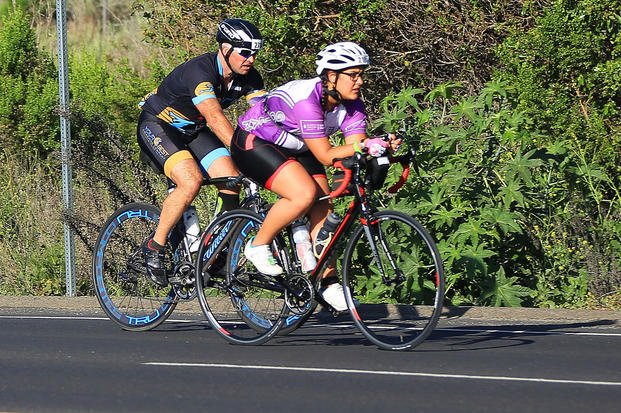Adventure races, ultramarathons, Ironman triathlons and extreme obstacle course races on mountain ski slopes are quite popular these days with the hardcore end of the fitness spectrum.
As with any tough program in the endurance world and military spec-ops selection, putting in the time is the key to your physical survival. But land navigation, canoeing, rock climbing and pure survival should be skills you and/or your teammates have great experience doing. Here is a question from the captain of an adventure racing team:
I am a team captain of an adventure race team, which is competing in a 24-hour race to raise money for programs that provide support to veterans. The race is over 24 hours, off road and involves map & compass navigation while canoeing, rucking and mountain biking. Considering this, is there any particular training regimen you would recommend to be as effective as possible with my team's training time? We would sincerely appreciate any advice or insight you can provide. Tim
Tim, events like these can be great ways to raise money for veteran assistance programs. Thank you for considering our veterans. I am sure you can use that as motivation as the hours get tougher through the evening.
Get used to the wilderness. For a 24-hour event, it is never a bad idea to prepare your mind, skills and body for such events by taking your team on long runs, rucks, some biking and canoeing, and top it off with a night camping. Getting comfortable in the wilderness is something that many people neglect and find themselves cold, dark, tired and hungry in the middle of nowhere. This can be quite exhausting and break the team up if people are not able to handle the basics of survival.
Fitness and nutrition: Your fitness is a must, and working out a few times a day at the beginning and end of your work day is a good way to get yourself used to being tired and moving. Get used to moving with weight on your back as well, perhaps a weight vest workout like we have on Weight Vest Wednesday.
But the most important thing is fuel. Nutrition, nutrition, nutrition -- these things come down to your fuel level and mental toughness. Make sure you bring enough foods, snacks and supplements to help you have energy to move constantly, as well as keep you warm (if cold outside).
During the summer, carrying more water and electrolytes will be a requirement to keep your pace going at a steady clip. Some good ideas for food should be food you like. Never pack something and eat it in a competition if you never have tried it; it might not agree with you and could make you ill. I like the foods from this list -- ABD of Nutrition.
Other skills: Mountain biking, canoeing, rock climbing and orienteering (map and compass) should be practiced -- and practiced while tired. You will be surprised at how your brain will not function at 100% once you introduce 18 hours of physical activity without much rest. Find a campground or local outdoor adventure training, or at least do some self-study online. Watch as many videos and read about the tools of the trade that you will need for such events.
I hope this is a good start for you and your team.
Stew Smith is a former Navy SEAL and fitness author certified as a Strength and Conditioning Specialist (CSCS) with the National Strength and Conditioning Association. Visit his Fitness eBook store if you're looking to start a workout program to create a healthy lifestyle. Send your fitness questions to stew@stewsmith.com.
Want to Learn More About Military Life?
Whether you're thinking of joining the military, looking for fitness and basic training tips, or keeping up with military life and benefits, Military.com has you covered. Subscribe to Military.com to have military news, updates and resources delivered directly to your inbox.


















